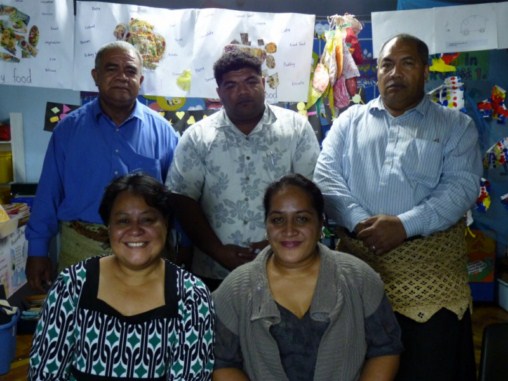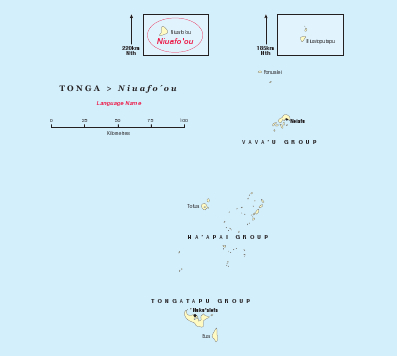Niuafo’ou (pop. 680) is an active volcano, and is home to the Niuafo’ou people. Prior to the last eruption of the volcano, the people were evacuated to ‘Eua, where they lived for a number of decades. Their original language was closer to Samoan than to Tongan, but much of the old language has died out during their stay on ‘Eua. Now a good number of Niuafo’ouans have re-settled on their home island, and a new hybrid language exists that appears to be viable on the home island and in the ‘Eua settlement.
Bible Translation in the Niuafo’ou language
In 2005 Nico and Pam Daams visited Tonga, and made first contact with several Niuafo’ou people. There seemed to be some genuine interest in Bible translation, and during subsequent visits this was confirmed. It was decided to adapt the Tonga translation known as the Moulton translation into the Niuafo’ou language to give a sense of continuity with the Scriptures the people are now most familiar with, while adapting it to their particular way of speaking.
Early 2017, the first draft of the translation of the New Testament was completed – a major milestone in this project.
The team then continued and checked each other’s books. Consultant Paulus Kieviet worked with Sitiveni Tu’ilautala as lead translator; together, they checked the New Testament verse by verse. In 2019, a trial edition of the Four Gospels was printed as a limited edition. This was distributed to reviewers for feedback. In the mean time, Paulus and Sitiveni continued to work on the remaining books.
In 2022, this process was finished. Sitiveni performed a final read-through of the complete translation; the text was checked for consistency, and later in 2022 it was typeset and sent to the printer in Japan.
By February 2023, the New Testament had been printed and was shipped to Tonga. The New Testament will be dedicated, Lord willing, in July 2023.

The Niuafo’ou translation team. Back: Penisimani Mone, Vili Naupoto, Folauhola Taukafa. Front: Liuaki Fusitu’a, Hengihengi Fusitu’a. (Not in picture: Sitiveni Tu’ilautala.)
